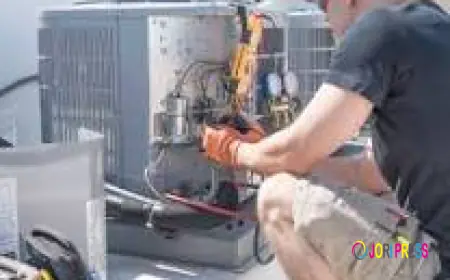5 Mistakes to Avoid When Using Auto Lien Services for Unpaid Repairs
Auto repair professionals often face the challenge of unpaid invoices. To recover rightful charges, many rely on lien services in Orange County. While this process provides legal leverage, mistakes in handling the lien can lead to rejections, delays, or even lawsuits. Knowing how to avoid critical errors helps ensure your claim stands strong. Below are five costly missteps and how to sidestep them with accuracy and compliance.
1. Missing the Filing Window
Timelines are strict in lien enforcement. One of the most common mistakes is not filing within the state-mandated timeframe. In Florida, the law typically requires lienholders to file within a set period after the last date of work or the date the vehicle was left unpaid.
Waiting too long means you lose the right to claim. Always track service dates and unpaid balances closely. Immediate action after non-payment is key. Set reminders and integrate this into your billing workflow to avoid overlooked deadlines.
Another common issue tied to deadlines is confusion around how the timeline is calculated. Some believe the filing window starts from the date of first service, but the law typically focuses on the last day labor or materials were provided. Misunderstanding this can result in missed deadlines and an invalid lien claim.
2. Improper Vehicle Identification
Incorrect or incomplete vehicle details on the lien notice will lead to invalidation. Common issues include:
- Wrong VIN
- Misspelled owner names
- Mismatched license plates
Before submitting the lien, verify all identification numbers match the vehicle’s title. Accuracy here is not just helpful—it’s required by law. A minor typo can be enough for the lien to get dismissed, which could make recovery efforts much harder or impossible.
It’s important to pull records directly from official databases rather than relying solely on what a customer verbally provides. Even a single-digit error in a VIN can lead to delays or cause the lien to be rejected entirely.
3. Failing to Send the Right Notices
Florida law requires mechanics to send written notice before initiating the lien process. These must go to the last registered owner and all interested parties, such as lienholders.
Failure to notify all required parties invalidates the lien. Always use certified mail with return receipt. Keep documentation of every notice sent and ensure the format matches state guidelines. Do not assume verbal agreements or reminders cover this legal step—they don't.
These notices also need to be sent within specific timeframes. Missing those windows can render even a properly filed lien unenforceable. Mechanics must keep copies of everything sent and confirm the notices are received—or at least attempted with official delivery proof.
4. Charging Unjustified Costs
Inflating invoices to increase the lien amount is not just unethical—it’s illegal. Lien laws only cover labor, parts, and services directly related to the repair. Storage may be included if previously agreed to or properly disclosed, but unrelated fees or inflated costs can void the lien.
Ensure all charges are well-documented and tied to the original service request. Keep clear service records, estimates, and client approvals. Transparency keeps the process compliant and defensible if questioned.
Always align invoice charges with what was communicated at the start of service. If charges changed or new issues were found during repair, written confirmation should be collected before work proceeds.
5. Using Generic Lien Forms Without Legal Review
Many shops download generic lien templates from unverified sources. These often lack the proper formatting or miss key language required under Florida law. Relying on these can lead to incomplete filings, rejection by the DMV, or liability issues.
Working with a qualified provider ensures the documents align with Florida’s legal structure. A valid lien protects your interests and follows every compliance step. Avoid shortcuts that lead to costly corrections or dismissals later.
A minor formatting mistake can invalidate an entire filing. Using proper documents that comply with legal statutes is essential for lien enforcement.
Why Getting It Right Matters
Auto mechanics rely on consistent income from repair jobs. Delayed or missing payments affect not just your bottom line, but operations and payroll. Filing a lien is not about conflict—it’s about securing what’s rightfully earned under the law.
But doing it wrong can cost more than the unpaid bill. Mistakes open the door to legal pushback or even financial penalties.
Professional Lien Filing Ensures Peace of Mind
An experienced lien service provider understands each detail and eliminates the guesswork. From documentation to submission and DMV follow-up, a professional approach removes the burden from your hands and helps avoid legal missteps.
Whether you’re handling a routine filing or dealing with a disputed invoice, accuracy is essential. It’s not just paperwork—it’s legal protection for the work you’ve completed.
Wrap Up:
Using lien services can help recover unpaid auto repair bills, but it must be done right. Avoiding these five errors improves your chances of a smooth, successful process. Whether you’re filing in Orange County or elsewhere in Florida, following correct procedures strengthens your legal standing. For vehicle-related filings, the process can vary slightly between counties. For instance, procedures for a Hillsborough County auto mechanic lien may involve unique regional steps—another reason to seek help from specialists who know local requirements.
Don’t leave your hard-earned income hanging. Get help from professionals who understand Florida’s mechanic lien laws inside and out. Whether you need guidance or full-service filing, expert support protects your time and money.
What's Your Reaction?
 Like
0
Like
0
 Dislike
0
Dislike
0
 Love
0
Love
0
 Funny
0
Funny
0
 Angry
0
Angry
0
 Sad
0
Sad
0
 Wow
0
Wow
0
















































